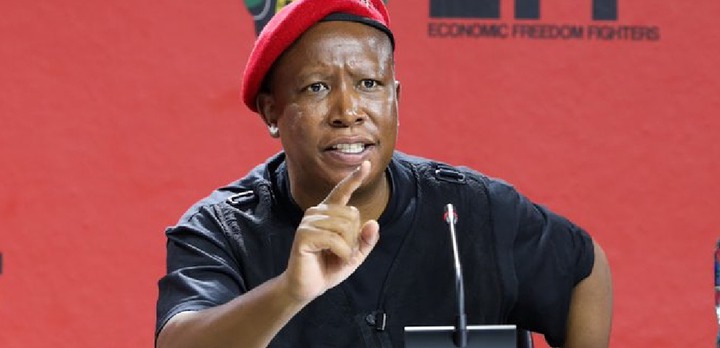EFF leader Julius Malema has launched a scathing attack on former president Jacob Zuma, accusing him of betrayal after his recent visit to Morocco where he endorsed the kingdom’s contested Western Sahara policy – directly contradicting South Africa’s official stance.
The fiery condemnation came during an EFF rally where Malema lambasted Zuma’s public support for Morocco’s autonomy plan for the disputed territory, calling it “a slap in the face” to decades of South African solidarity with the Sahrawi independence movement.
“Zuma has crossed the line from liberation hero to colonial apologist,” Malema told supporters. “By shaking hands with those who deny the Sahrawi people’s right to self-determination, he’s become what we feared most – a sellout to the Pan-African cause.”
The diplomatic rift exposes growing tensions between the EFF and Zuma’s MK Party, which has broken ranks with ANC foreign policy that has consistently supported the Polisario Front’s quest for an independent Western Sahara.
Political analysts note the timing is particularly sensitive as Zuma seeks to position his MK Party as the true heir to South Africa’s liberation legacy. “This isn’t just about foreign policy – it’s about who gets to claim the mantle of revolutionary credibility,” said University of Johannesburg political studies professor Siphamandla Zondi.
The Moroccan government has welcomed Zuma’s stance, with state media highlighting his description of Rabat’s autonomy plan as “realistic and credible.” This stands in stark contrast to South Africa’s official position, which recognizes the Sahrawi Arab Democratic Republic as Western Sahara’s legitimate government.
ANC Secretary-General Fikile Mbalula declined to comment directly on Zuma’s actions but reaffirmed the party’s “unwavering support for the Sahrawi people’s right to self-determination.” The Department of International Relations has yet to issue an official response.
As the political fallout continues, the controversy raises broader questions about South Africa’s foreign policy direction amid shifting alliances. With Zuma increasingly charting an independent diplomatic course, analysts warn this episode may signal more fundamental realignments in South African politics ahead of crucial elections.






















